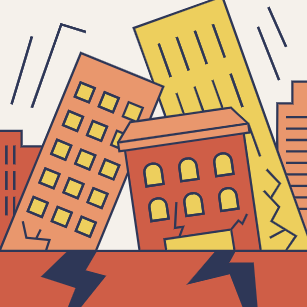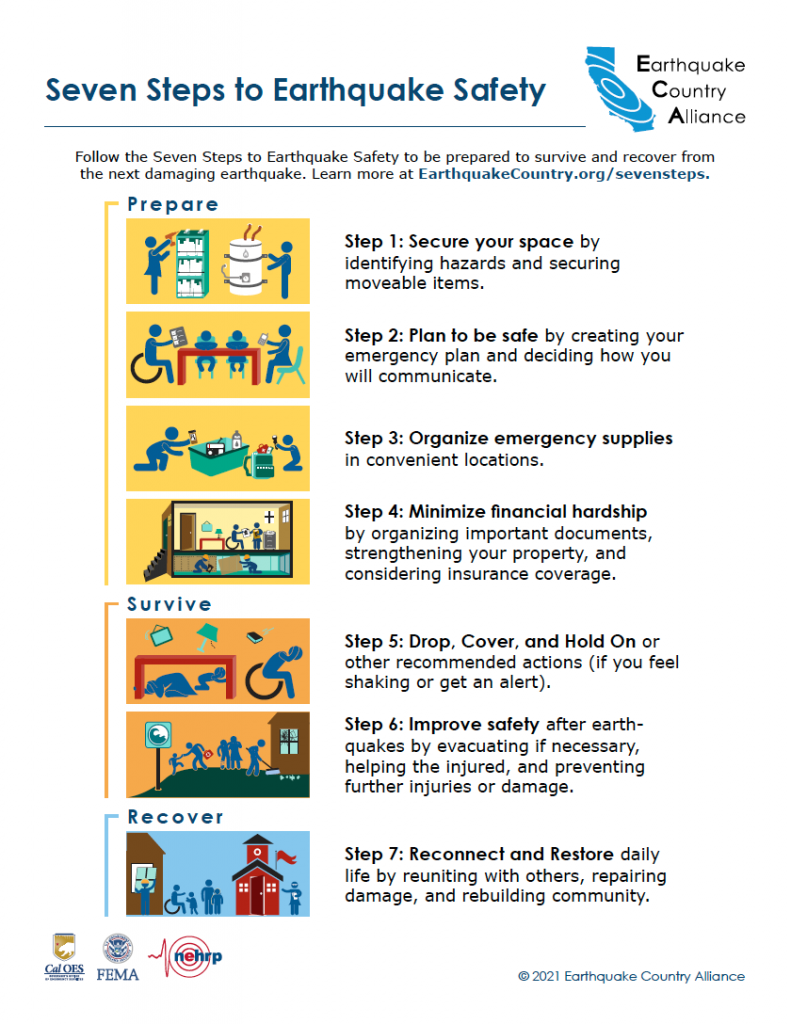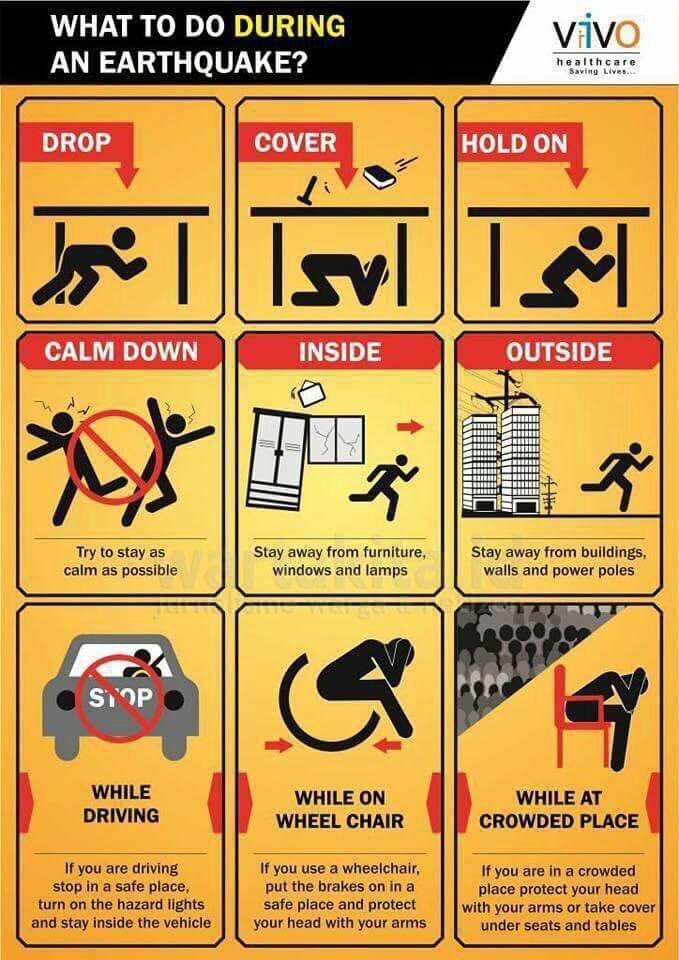Earthquake Preparedness for Caregivers & Consumers

In California, we experience occasional earthquakes, and it is important to know what to do.
As a caregiver, there are easy actions you can take to be prepared when an earthquake strikes.
Here we provide you with some of the emergency preparedness tips that we teach caregivers in the Emergency and Disaster Readiness (EDR) course at the Center for Caregiver Advancement (CCA).
Tips: Prepare for Earthquakes in Advance
- If you care for a person with disabilities or functional needs, make an advance plan with trusted allies for help with special transportation in emergencies.
- Make a plan for navigating damaged ramps & rails, if you have to evacuate
- If you or your consumer has speech disabilities or communication limitations, carry an instruction card or picture board on how to communicate with you
- Carry assistive devices with you
The infographics below offer easy steps to follow before, during, and after an earthquake.
CCA offers this information to help you stay calm and focused to keep you and your care recipient safe.


To stay informed and prepared during an earthquake, keep these important contacts handy:
Local Emergency Services: Dial 911 for immediate assistance during an emergency.
National Earthquake Information Center: Call 1-888-ASK-USGS for real-time earthquake data.
Earthquake Warning California: https://earthquake.ca.gov/
American Red Cross: Reach them at 1-800-RED-CROSS for disaster preparedness resources.
FEMA: Contact 1-800-621-FEMA for federal disaster assistance and information.
Local Government Office: Check your city or county’s emergency management office for local alerts.
Community Alert System: Sign up for local alerts via text or email for real-time updates.
Sources:
Listos California: https://www.listoscalifornia.org/resources/?_resource_topics=earthquake
Image credits: CCA; Vivo Healthcare; ECA, CalOES, FEMA, NEHRP, Listos

